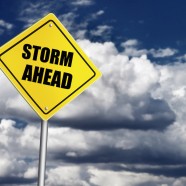
Hurricanes are something that every resident in southeast Florida needs to take seriously. Living through a hurricane is a distinct possibility every year, and each May meteorologists predict deadlier storms for the area during the coming hurricane season. Traditional television coverage shows news reporters standing dramatically in front of ragged palm trees swaying in the wind, but losing your landscaping is the least of your worries during these storms. Florida residents face devastating losses from each hurricane, but you can prevent most of the damage by planning ahead and installing protection from power failures.
Loss of Power
During the worst of the storms, the first thing to happen is usually an electrical power failure. Losing power means different things for everyone, but at the very least it endangers food in refrigerators and lives in terms of needed medical machinery. Some things, like the loss of lights and televisions, can be seen as minor inconveniences. They’re easily dealt with by using alternate means such as candles and lanterns for lights and battery-operated entertainment devices. On the other hand, losing power to your refrigerator and freezer can mean losing hundreds of dollars worth of meat and produce. Losing your internet can mean huge losses at your job. And loss of electrical power can be life-threatening if you depend on oxygen tanks or refrigeration for your medication.
Safeguarding Power
The best way to ensure you won’t suffer from damage during an electrical power failure is to install a standby home generator. The size of generator you need depends on the size of your house and the amount of power you feel you absolutely need during the outage. You may be able to get by with the refrigeration and lights afforded by a smaller unit. On the other hand, if your health requires you to stay in a cool and dehumidified environment, you’ll need a larger unit that’s capable of running your central air conditioning unit. All units run in a similar manner, and they all have to be maintained monthly, but you decide how much power you really need during an outage.
Lightning Strikes
Hurricanes aren’t just wind and rain storms. They can create some intense lightning in a state that’s already number one in the country for strikes. Adding lightning protection to your home can mean the difference between a frightening noise and a serious fire hazard. Lightning strikes hundreds of buildings each year in Florida. Have your local electrical contractor install lightning protection in the form of air terminals, or lightning rods, to the roof of your home. If lightning does strike nearby, the electrical power will be diverted safely into the ground nearby, passing up your home. You’ll eliminate the fire hazard and the resulting electrical surges that can come with uncontrolled lightning.
Power Surges
Another danger from lightning storms or any type of electrical disturbance is electrical surges in your system. Most modern homes have multiple televisions, plus stereo systems and one or more computers in the house. Electrical surges can fry all the delicate electronics in your home if you’re not prepared with serious surge protection. You’ll need an updated breaker box in good condition, as well as surge suppressors that cut the power before surges can reach your electrical equipment. Since many instances of electrical power failure start off with a large surge of electricity that damages the power grid, having surge protection is a natural next step when it comes to protecting your home from the damage that hurricanes can cause.

Recent Comments